Encounter Books and Expand Your World!
Get to know a bigger world by encountering books
In Laos, there are few books written in the Laotian language, and only a limited number of children have the chance to come across books. School education is conducted in Lao, the official language. However, Laos is a multiethnic country. The children from ethnic minority communities whose mother tongue is not Lao attend classes without fully understanding the language, which leads to a high dropout rate
By improving the library environment such as school libraries, Earth Tree aims for the children to first “be familiar with books and to learn Lao while having fun”. Then, “through reading, they may build up the ability to learn by themselves, and to be able to choose their own future”
Activities in Laos
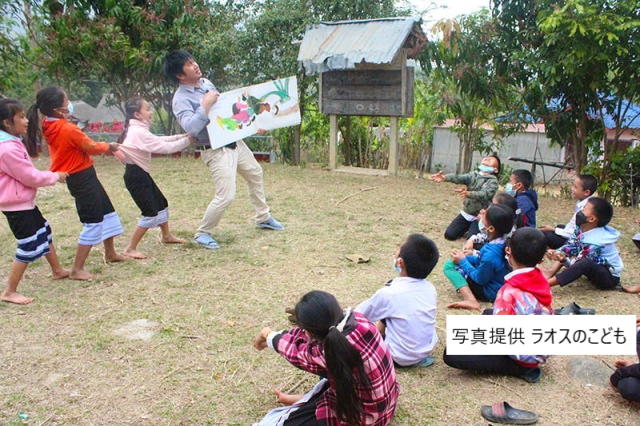
Earth Tree launched the Lao Book Program in 2022, by supporting the activities of an NGO Action with Lao Children, which continues to promote library education in Laos.
Local Activities
Activities conducted in the fiscal year 2022 (from April 2022to March 2023)
School Library Step-up Training
Earth Tree supported training for teachers and volunteer students of two secondary schools in Vientiane. The aim was to make it easier for ‘Action with Lao Children’ to encourage students to use the libraries they established, and for teachers to promote using books in classes.
Reprinting environmental picture books in the Laotian language:
Since there are few books available for learning different subjects in Laos, we reprinted 800 additional copies of the environmental picture book “Koi Pai Saino” (Japanese title: “Boku wa doko ni ikuno). The reprinted books have been distributed to school libraries and are also being used in workshops.
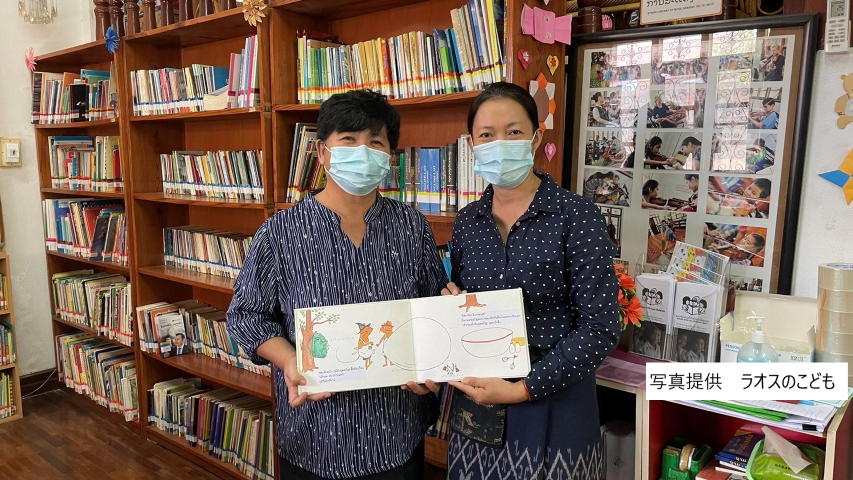
Activities conducted in the fiscal year 2023 (from April 2023 to March 2024)
Reprinting of the picture book “KAPKONG SONGKAM” (Japanese title: “rizum de manabu raosugo “), which is useful for acquiring letters. We support the reprinting of this picture book that enable children in the early primary level to learn the Laotian language in a fun and natural way. Acquiring the knowledge to read and write will build the foundation of their basic academic skills.
Activities in Japan
Holding lectures to deepen the understanding of the library environment in Laos.
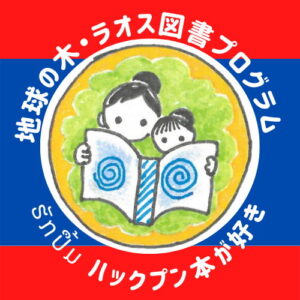
Pasting translation in the Lao language onto picture books
Volunteers paste the story translated into Lao by Action with Lao Children onto Japanese picture books.
These books are then distributed to school libraries in Laos. We are looking for volunteers to help with the pasting activity.
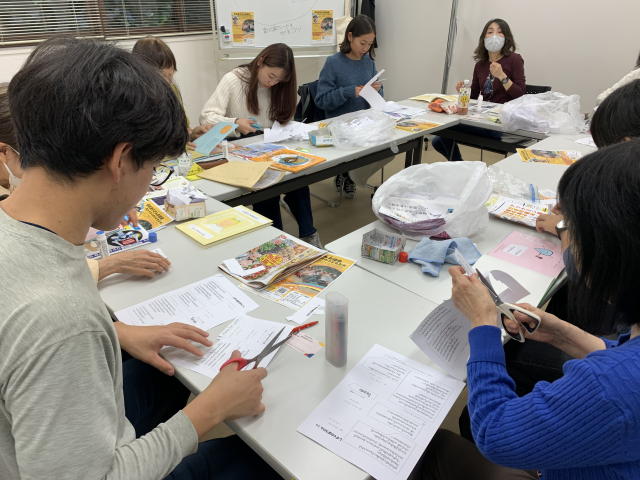
Our local Partner :
A non-profit organization “Action with Lao Children (ALC)” (https://deknoylao.net)
ALC is an NGO for international cooperation that has been active in Japan and Laos since 1982, working to improve the educational environment for children in Laos. Their aim is to contribute to the creation of a just and peaceful global society by helping to spread education so that the children my fulfil their right to develop their own strength and the right to choose their own path in life by themselves.
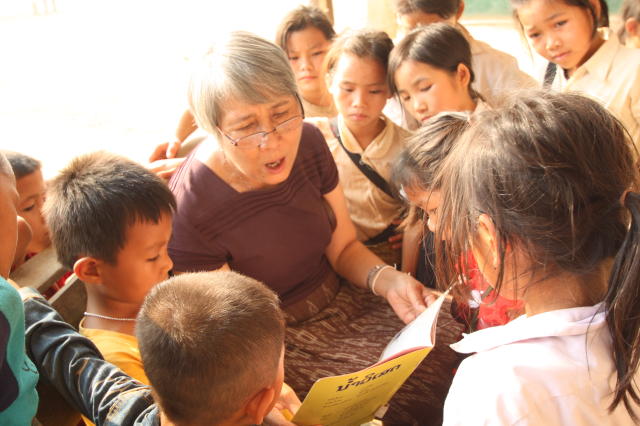
Representative: Ms. Chanthason Intavong
She came to Japan from Laos as a government-sponsored student. She wished to spread the wonders of Japanese picture books and the importance of education in her home country. She set up “Action with Lao Children” with her friends in 1982 and has been supporting education in Laos through books, opening 356 libraries across Laos and publishing 950,000 copies of books written in the Laotian language.




